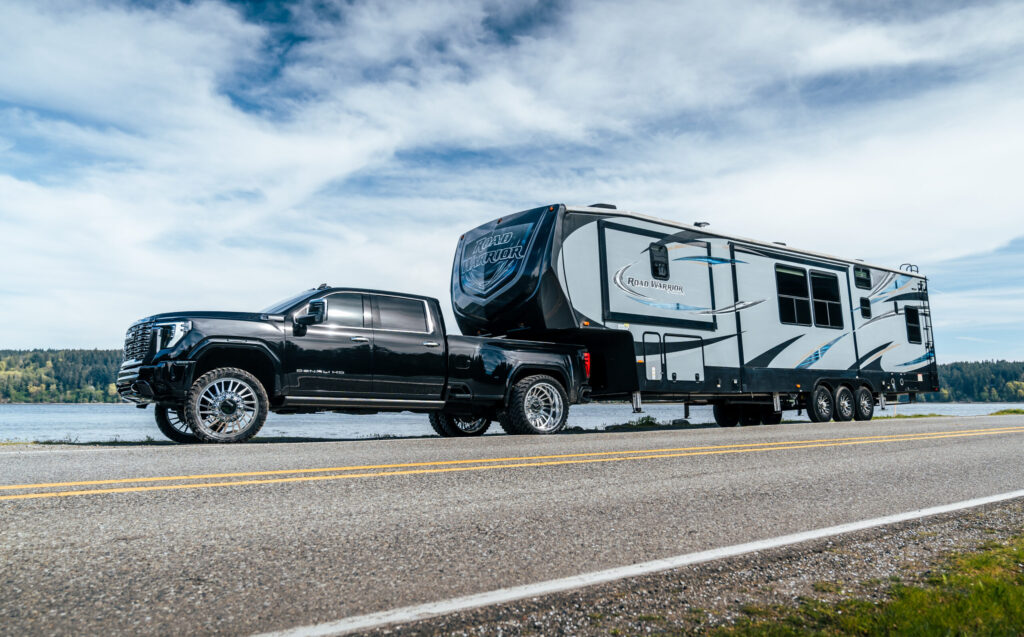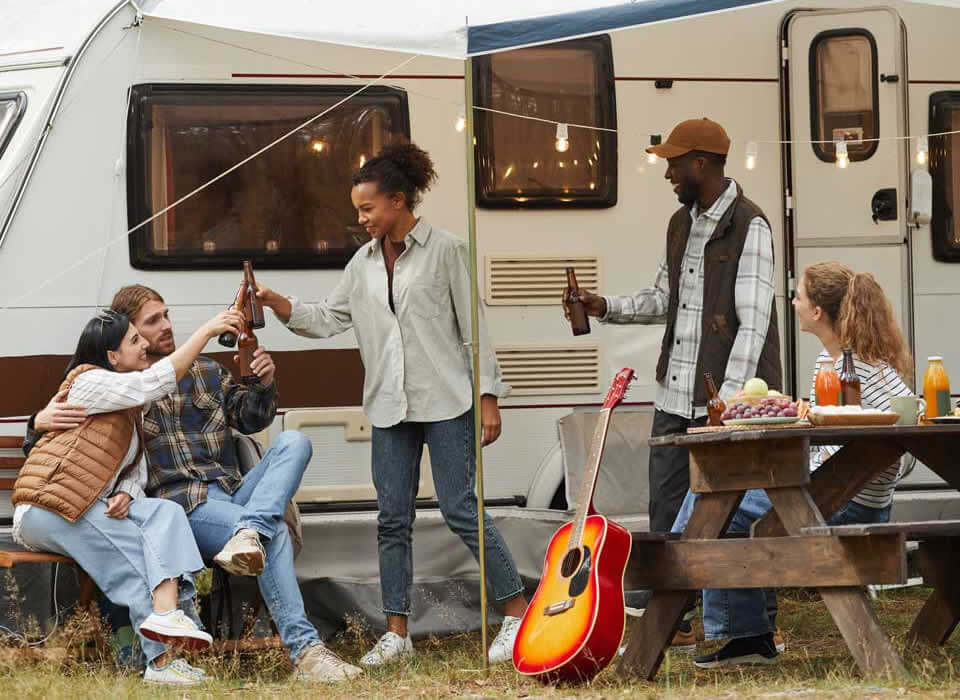Oregon RV Insurance
From the rain‑soaked coastlines to the high desert landscapes and forested trails of the Cascades, Oregon offers RV owners rich experiences and dramatically changing environments. Whether you’re parked along the Pacific, exploring Crater Lake, or navigating winding roads through the Willamette Valley, having an RV elevates your ability to explore this diverse state on your own terms. Oregon’s natural beauty—along with its variable weather, changing terrain, and remote stretches—makes it essential to carry insurance that protects not just your RV, but your travels and lifestyle.
Whether you use your RV for weekend getaways, seasonal camping, or full‑time living, Oregon RV insurance must account for storms, liability, storage risks, and more. With a policy built for your usage and location, you can enjoy Oregon’s wilderness or urban adventures with peace of mind.

Oregon RV Insurance Frequently Asked Questions
Yes. Oregon law mandates liability insurance for all motorized vehicles, including motorhomes (Class A, B, and C). You must carry minimum liability coverage to register and operate a motor vehicle legally. For trailers and towables, Oregon requires the towing vehicle to have liability insurance, but damage to the trailer itself or its contents usually requires additional coverage.
Oregon’s climate and geography introduce risks that go beyond typical road travel. Heavy rains, coastal storms, wildfires, and even flood threats in certain areas can damage your RV while parked or on the move. Driving winding roads or traveling in remote stretches can lead to higher liability or damage exposure. Insurance protects you from large out‑of‑pocket costs due to damage, accidents or liability claims, and helps protect both your investment and peace of mind.
- $25,000 for bodily injury per person
- $50,000 for bodily injury per accident
- $20,000 for property damage liability per accident
- Personal Injury Protection (PIP): $15,000 per person
- Uninsured/Underinsured Motorist bodily injury: $25,000 per person / $50,000 per accident
Note: These are Oregon’s legal minimums. Many RV owners choose higher liability limits and extra protection—for weather damage, storage risks, or if they use their RV as a residence.
Prices depend on many variables: the class and value of your RV, whether you use it seasonally or full‑time, your driving record, ZIP code, and storage conditions. Optional coverages like comprehensive, collision, personal effects, emergency expense or roadside assistance will also influence the premium. Rural or remote storage and harsher climates tend to increase cost, while bundling with other policies or keeping a clean driving record often leads to savings.

Testimonials
Marty Karriker is a class act! His communication and business ethics are top notch and it’s always a pleasure to work with him and his team.
- Andrew Steele (RVing with Andrew Steele)
Common RV Risks in Oregon
If you own an RV in Oregon, you’ll want coverage for a number of specific risk factors. These include both natural hazards and travel‑style exposures:
- Heavy rainfall and flooding, especially near coastal or low elevation areas
- Wildfires and smoke damage during dry seasons in forested or rural regions
- Storm damage including hail, wind, or falling debris
- Theft or vandalism, particularly in urban areas, campgrounds, or unsecured storage
- Road damage and collisions on curvy or mountain roads, especially under wet or icy conditions

Recommended Coverage for RV Owners in Oregon
To protect your RV thoroughly, many Oregon RV owners add optional coverages beyond what is legally required. These help guard against damage, loss, or liability under broader circumstances:
- Comprehensive Coverage: Covers non‑collision events like fire, theft, weather, or animal damage
- Collision Coverage: For damage when your RV hits another vehicle or object
- Uninsured/Underinsured Motorist Coverage: Protection if you are hit by a driver without adequate insurance
- Vacation or Park Liability: Coverage when your RV is used as a temporary residence or guest facility
- Personal Effects Coverage: Protects your gear and belongings inside the RV
- Emergency Expense / Roadside Assistance: Lodging, towing, or other unexpected travel costs if you’re stranded
- Full‑Time RV Insurance: For those living in their RV, with coverage closer to homeowner‑type protections
Unique Aspects of RV Ownership in Oregon
Oregon RV owners often move between vastly different environments—coastal rain, forested mountains, and high desert. That means your RV must withstand moisture, salt exposure, temperature swings, and road wear. Storage conditions vary wildly, from covered RV parks to remote rural lots, which increases exposure to weather or theft. Full‑time RVers must think about residence liability and content coverage, not just travel damage.
Also, because Oregon law requires minimum liability and includes PIP and uninsured motorist protections, RV policies often need adjustments to meet or exceed these thresholds. Urban areas or popular campgrounds may also carry higher risk of vandalism or theft, so location plays an important role in coverage choices.
Request a Quote
Whether you’re headed to the coast, the Cascades, or high desert trails, our Oregon RV insurance policies are built for your travel style, RV type, and storage situations. Contact us now for a personalized quote and travel confidently across Oregon.

